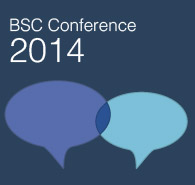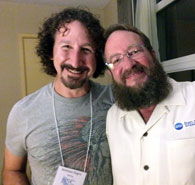by Siegfried Othmer | January 7th, 2015
by Siegfried Othmer, PhD

A common concern among those paid to worry about the society in general, and the economy in particular, is what we may expect to see as the main driving force for change in the near future. The emerging sharing economy may be one of the best candidates for transformative change. And within the sharing economy, the ride-sharing outfit Uber may be the most visible example. Uber has been in the news lately because it received an infusion of investor funds that placed the implicit value of the company at some $40B. This is doubly startling when it is viewed against the company’s sales last year of a mere $1B.
Read More »
Posted in Commentary, Health Care, Neurofeedback | 1 Comment »
by Siegfried Othmer | December 11th, 2014
by Siegfried Othmer, PhD

I n one fast-paced hour, Sigi Hale of the UCLA Department of Psychiatry recapitulated his graduate work, his postgraduate work, and his research since that time with reference to ADHD. The body of work was largely concerned with the lateralization of function, which yielded new insights on ADHD. The specifics are beyond the scope of this overview.
Read More »
Posted in Neurofeedback | 2 Comments »
by Siegfried Othmer | December 11th, 2014
by Siegfried Othmer, PhD

E ric Peper entertained us with a discussion of just how much can be accomplished with attention to basic lifestyle issues such as diet, exercise, breathing, and posture. In a participatory session, the audience experienced directly the importance of posture in mood regulation and functional competence—even physical strength. Posture has a direct and prominent influence on cortisol and testosterone levels. Our fixation on computer screens and smartphones while looking downward leaves us with non-optimal posture and at risk of postural immobility syndrome. “We look down and curve our upper spine to read the tablet, crane our heads forward to read the screen, lift our shoulders, arms and hands up to the laptop keyboard to enter data, and we bend our heads down and squint to read the smartphone—all occurring without awareness.”
Read More »
Posted in Neurofeedback | No Comments »
by Siegfried Othmer | December 11th, 2014
by Siegfried Othmer, PhD

B ob Grove is one of the encyclopedic minds in the biofeedback field, one who has been involved in software development for some decades, but he has also been steeped in research and practice. The research involvement has tended to be unheralded, as his contribution tended to be in background through the development of the required software. On this occasion the talk dealt with the tactic of thought stopping, or thought interruption, to deal with worry. This technique dates back to the early eighties. Thought interruption (ideally within five seconds) is then followed by a shift of attention toward internal states, and to what is prominent there with respect to internal sensation. The mere shift of attention to internal states in this way already gets the physiology shifting in the right direction, toward calmness. But one can also engage more actively to manage the sensations.
Read More »
Posted in Neurofeedback | No Comments »
by Siegfried Othmer | December 11th, 2014
by Siegfried Othmer, PhD

N icholas Dogris has in a few short years opened up a new technological horizon with what he calls pulsed EMF stimulation, which was developed in collaboration with his electronics engineer partner, Brad Wiitala. What is involved here is simply very low-level magnetic field stimulation within the EEG frequency range and even going beyond it, out to a kiloHertz.
Read More »
Posted in Neurofeedback | No Comments »
by Siegfried Othmer | November 14th, 2014
by Siegfried Othmer, PhD
.jpg)
Going to India had not been on our bucket list when this opportunity arose, but the potential significance of our undertaking became clear to us rather quickly. And now, as we look back, we see the realistic possibility of our hopes being realized. It has been amazing to observe the ongoing mental gymnastics of Western-educated academic minds in order to reject the implications of self-regulation based therapies. This has been so for the entire twentieth century, and it continues even now. The proposition goes against the grain of their intellectual upbringing. Practicing professionals may even see this development as a threat to their livelihood.
Read More »
Posted in Neurofeedback | 1 Comment »









.jpg)